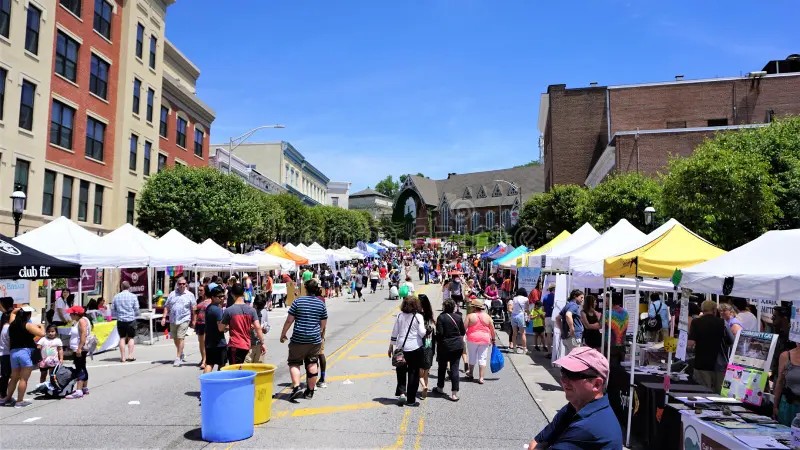
The Transformative Power of Cultural Events: A Blueprint for Community, Wellness, and Personal Growth
In our increasingly digital and often fragmented world, the fundamental human need for connection, shared experience, and collective identity remains more potent than ever. Cultural events, in their vast and vibrant diversity, serve as the modern-day agora—the public squares where communities gather, ideas are exchanged, and personal growth is nurtured. Far from being mere items on an entertainment calendar, these gatherings are intricate ecosystems that fuel local economies, enhance our well-being, and weave the very fabric of our society. From scholarly virtual workshops and sprawling international art fairs to intimate local food festivals and community clean-up days, cultural events are powerful catalysts for change. They offer a unique intersection of education, celebration, and interaction, providing profound benefits that ripple through our personal and professional lives. This article explores the multifaceted world of cultural events, dissecting their structure, analyzing their impact, and offering a guide to maximizing their transformative potential for both organizers and attendees.
The Anatomy of a Cultural Event: More Than Just a Gathering
At its core, every cultural event is a carefully orchestrated experience designed to achieve a specific purpose. Understanding their fundamental components allows us to appreciate their complexity and impact. While a local music festival and an international academic conference may seem worlds apart, they share a common DNA that defines their function and success. A holistic view reveals that these events are not monolithic; they are diverse platforms tailored to specific audiences and goals, each contributing uniquely to the cultural landscape.
The Core Components of Impactful Events
Every successful cultural event is built on three pillars: a clear purpose, a defined audience, and thoughtful logistics. The purpose is the “why”—is it to celebrate a shared heritage, foster professional dialogue, showcase artistic innovation, or promote principles of Sustainable Living? The audience determines the tone, content, and accessibility. An event for scholars requires a different approach than one designed for Family Life and young children. Finally, logistics—the venue, timing, technology, and resources—form the container for the experience. In today’s world, this includes the seamless integration of technology for hybrid participation, ensuring that even those engaging through Remote Work setups feel included.
A Spectrum of Cultural Experiences
Cultural events span a wide spectrum, each offering distinct benefits. Recognizing this diversity is key to finding experiences that align with personal interests and goals for Self-Improvement.
- Community Festivals: These are the lifeblood of local identity, from harvest festivals celebrating local agriculture to heritage parades. They strengthen Community Living, support local artisans, and provide accessible entertainment.
- Arts and Performance: Events like the Venice Biennale or a local theater production push creative boundaries. They not only provide entertainment but also inspire our own lives, influencing everything from Home Decor and Interior Design to personal fashion choices.
- Educational and Scholarly Gatherings: Workshops, seminars, and conferences are crucial for Personal Development and Career Advice. They are hubs for innovation, networking, and deep learning on specialized topics, from Investment News to advances in holistic medicine.
- Lifestyle and Wellness Retreats: Focusing on well-being, these events can range from large-scale Yoga News festivals to intimate Mindfulness and Meditation retreats. They provide practical tools for Stress Management and improving overall Health & Wellness.
The Ripple Effect: How Cultural Events Shape Individuals and Society
The influence of cultural events extends far beyond the confines of the venue or the duration of the schedule. Their true power lies in the lasting ripple effect they have on individual well-being, social cohesion, and economic vitality. Attending an event is not a passive act of consumption; it is an active engagement that can reshape our perspectives, improve our health, and strengthen our community bonds.
The Impact on Personal Well-being
In an era where discussions around Mental Health are paramount, cultural events offer a powerful, proactive tool for enhancing emotional and psychological resilience. Engaging with art, music, and community has been shown to reduce symptoms of anxiety and depression, combat loneliness, and increase feelings of happiness. A weekend spent at a festival can be a form of active Meditation, breaking the cycle of daily stress and improving Sleep Health. Furthermore, many events offer direct opportunities for skill-building. A workshop at a local fair might teach valuable DIY Projects, Gardening Tips for Urban Gardening, or provide inspiration for Healthy Recipes and Meal Planning, directly contributing to a healthier lifestyle and a sense of accomplishment.
The Socio-Economic Footprint
On a larger scale, cultural events are significant economic engines. A major festival can inject millions of dollars into a local economy, benefiting hotels, restaurants, and small businesses. This is often a highlight in Travel News, as “destination events” become major draws for tourism. This economic activity also creates jobs, from event planners to security personnel. Beyond the financial impact, these events have a profound Social Impact. They are platforms for Volunteering, bringing people together for a common cause and fostering a sense of shared identity and pride. They can bridge social divides, offering a space where people from diverse backgrounds can connect and celebrate shared humanity. For older populations, these events are crucial for promoting Aging Well and combating the isolation that can accompany Senior Living.
Case Study: The Rise of Niche Festivals
Consider the explosion of niche festivals focused on Eco-Friendly Living. These events bring together vendors, speakers, and attendees passionate about sustainability. Here, one can attend a talk on Zero Waste principles, participate in a workshop on creating Natural Cleaning products, and discover brands leading the way in Sustainable Fashion. This not only creates a market for green businesses but also educates and empowers individuals to make more conscious choices, demonstrating how a cultural event can be a catalyst for widespread behavioral change.
The Modern Evolution: Digital Transformation and Sustainability
The landscape of cultural events is in a constant state of flux, shaped by technological advancements and a growing collective consciousness around environmental responsibility. The modern event is no longer confined to a physical space but exists in a hybrid reality, and its success is increasingly measured not just by attendance but by its ecological footprint. This evolution presents both exciting opportunities and new challenges for organizers and attendees alike.
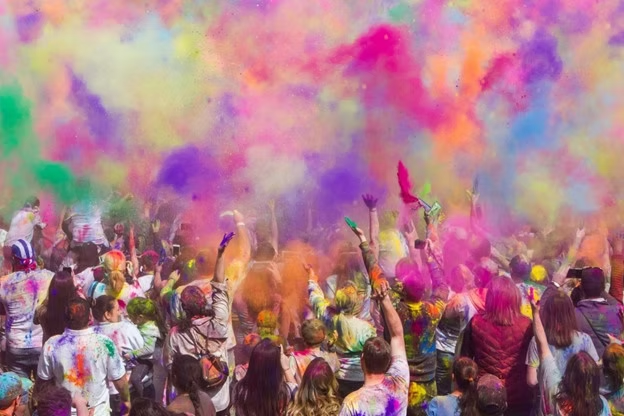
The Digital Frontier: Virtual and Hybrid Events
The normalization of virtual participation has revolutionized accessibility. People with mobility issues, financial constraints, or caregiving responsibilities can now attend global events from their living rooms. This digital shift leverages Technology for Home, turning a simple laptop or Smart Home display into a gateway to global culture. This format is particularly beneficial for academic and professional events, allowing for a wider dissemination of knowledge and fostering international collaboration without the need for costly travel. However, the industry continues to grapple with “Zoom fatigue” and the challenge of replicating the spontaneous networking and palpable energy of an in-person gathering. The most successful hybrid models are those that design unique, engaging experiences for both their physical and virtual audiences, rather than simply live-streaming the in-person event.
The Green Mandate: Embracing Sustainability
As awareness of the climate crisis grows, the cultural sector is facing a mandate to become more sustainable. Organizers are increasingly adopting Green Living practices to minimize their environmental impact. This includes everything from banning single-use plastics and implementing comprehensive recycling programs to sourcing food from local farmers and promoting public transportation. Some events are even becoming platforms for environmental advocacy, incorporating workshops on topics like Plant Care, composting, and Minimalism. This focus on sustainability is not just an ethical obligation but also a response to audience demand. Today’s attendees are more conscious of their impact and are more likely to support events that align with their values, making green credentials a key factor in the modern cultural landscape.
Maximizing the Experience: A Guide for Attendees and Organizers
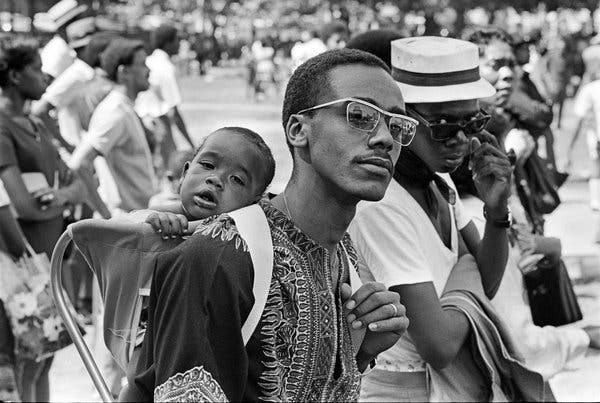
Whether you are planning to attend a local art walk or organizing a multi-day conference, a thoughtful approach can significantly enhance the value and impact of the experience. It’s about moving from passive consumption to active participation and from logistical execution to creating meaningful, lasting connections.
Tips for Attendees
- Plan with Purpose: Before you go, review the schedule and identify the talks, exhibits, or performances that align with your goals for Personal Development or leisure. Use Budget Tips to plan your expenses, from tickets to food, to avoid financial stress.
- Engage Mindfully: It’s easy to experience an event through your phone screen. Practice being present. Put your device away during a performance or conversation. This enhances your own experience and shows respect for the artists and speakers, contributing to a better Work-Life Balance by truly disconnecting.
- Bring the Inspiration Home: The event doesn’t end when you leave. Use the inspiration you’ve gathered. Try out those new Food & Cooking techniques. Start that Decluttering project you learned about. Apply the Productivity Tips from a workshop to your daily routine.
–
–
Best Practices for Organizers
- Prioritize Inclusivity and Safety: A truly successful event is one where everyone feels welcome and safe. This means considering physical accessibility, offering inclusive pricing structures, and having clear codes of conduct. Robust planning should also include elements of Home Security principles, such as crowd management and emergency preparedness.
- Communicate Clearly and Effectively: From the initial announcement to post-event follow-up, clear communication is crucial. An easy-to-navigate website, regular updates, and a simple registration process reduce friction and build trust with your audience.
- Measure What Matters: Look beyond ticket sales and social media mentions. Gather qualitative feedback on the attendee experience. Track the event’s economic and social impact on the local community. This data is invaluable for securing future funding and demonstrating the event’s true value.
–
–
Conclusion: The Enduring Importance of Gathering
Cultural events are far more than just entries in our social calendars; they are vital infrastructure for a healthy and vibrant society. They are the platforms where we celebrate our shared humanity, challenge our perspectives, and build stronger, more resilient communities. From fostering individual Mental Health and well-being to driving economic growth and promoting a more sustainable future, their impact is both deep and wide-ranging. In an age of digital saturation, the act of coming together—whether in a park, a concert hall, or a virtual seminar—remains a profoundly human and necessary endeavor. By actively participating in, supporting, and creating these experiences, we invest not only in our own enrichment but in the collective health and dynamism of our world.
You may also like
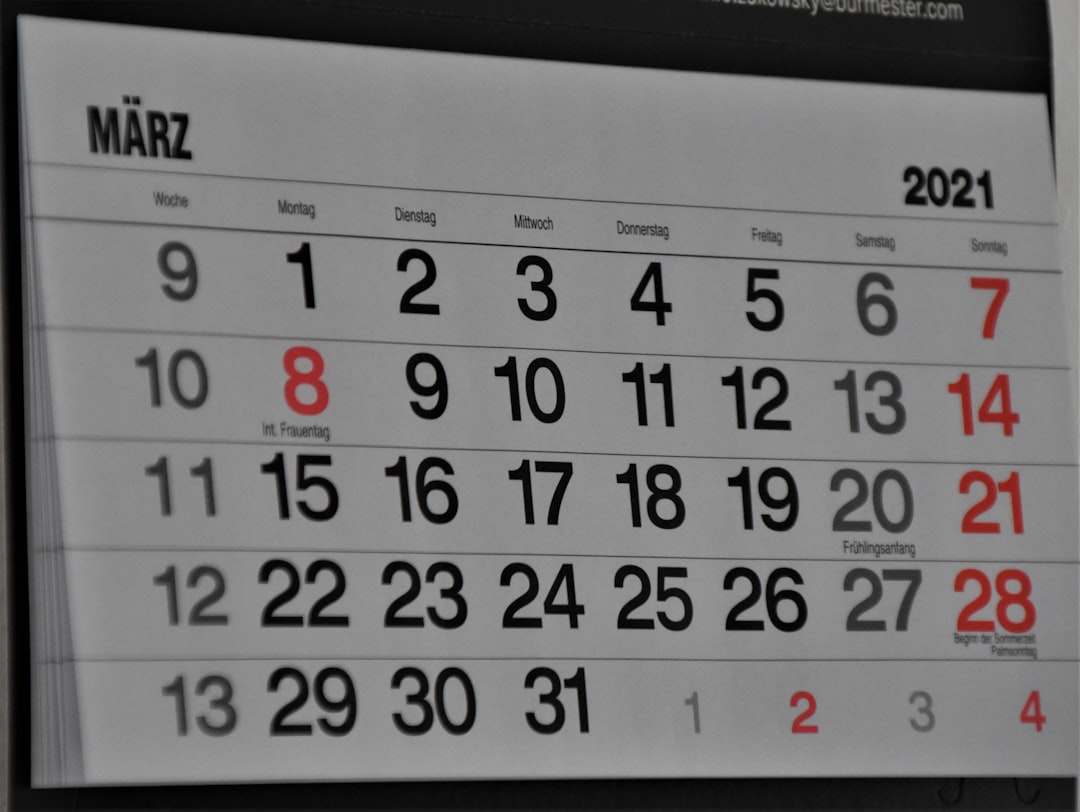
Stop PDF-ing Your Cultural Calendars
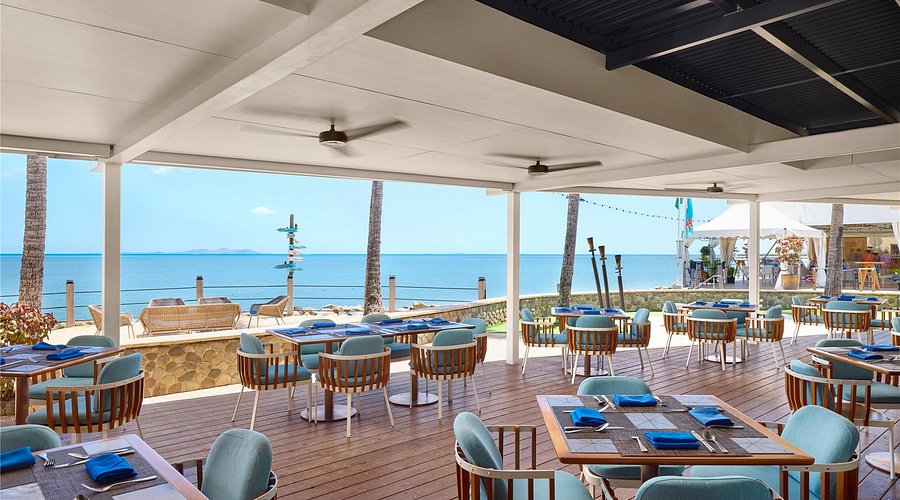
Vietnam’s 2025 Cultural Reboot: It Wasn’t Just Fireworks
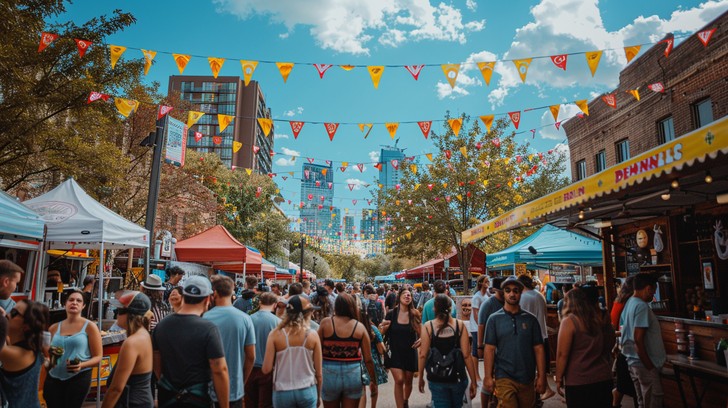
Archives
- February 2026
- January 2026
- December 2025
- November 2025
- October 2025
- September 2025
- August 2025
- July 2025
- June 2025
- May 2025
- April 2025
- March 2025
- February 2025
- January 2024
- October 2023
- September 2023
- August 2023
- July 2023
- June 2023
- May 2023
- April 2023
- March 2023
- February 2023
- January 2023
- December 2022
- November 2022
- October 2022
- September 2022
- August 2022
- June 2022
- May 2022
- April 2022
- March 2022
- January 2022
- December 2021
- November 2021
- October 2021
- August 2021
- November 2020
- July 2020
- May 2020
- April 2020
- March 2020
- August 2018
- July 2018
- June 2018
- April 2018
- March 2018
Categories
- Aftercare Procedures
- Age Groups
- AI/ML
- Alternative Medicine
- Ambient Computing
- Animal Health
- Animal Husbandry
- Animals
- Anti-Aging
- Architectural Design
- Art And Technology
- Auditory Science
- Augmented Reality
- Automation
- Babies
- Baby
- Beauty & Skincare
- Beauty Industry
- Biohacking
- Biomechanics
- Book Reviews
- Breastfeeding
- Budgeting
- Budgeting Strategies
- Business
- Cardiovascular Health
- Career Advice
- Career Development
- Career Growth
- Cats
- Chess
- Chronobeauty
- Circular Economy
- Civic Technology
- Cleaning Tips
- Cloud Computing
- Cognitive Health
- Cognitive Performance
- Cognitive Science
- Community
- Community Building
- Community Engagement
- Community Living
- Computer Vision
- Consumer Guides
- Consumer Trends
- Container Gardening
- Content Analysis
- Content Non-Technical
- Content Strategy
- Cooking Techniques
- Cosmetic Chemistry
- Cultural Events
- Cycling
- Data Analysis
- Data Engineering
- Data Governance
- Data Science
- Database
- Design Psychology
- Design Trends
- Developer Productivity
- Diet
- Diet
- Diet And Nutrition
- Digital Identity
- Digital Media
- Digital Wellbeing
- DIY
- DIY Projects
- Dogs
- Engineering Culture
- Entertainment News
- Environmental Impact
- Environmental Science
- Equity Compensation
- Ethical AI
- Exercise
- Exercise Science
- Exercise Technique
- Exotic Pets
- Fall Gardening
- Family
- Family Health
- Family Life
- Fashion Business
- Fashion Industry
- Fashion News
- Fashion Tech
- Financial Analysis
- Financial Optimization
- Financial Planning
- Flooring Maintenance
- Food
- Food Psychology
- Food Safety
- Food Science
- Food Tech
- Functional Fitness
- Functional Training
- Future Of Work
- Garden Care
- Garden Maintenance
- Gardening Tips
- Geospatial Data
- Gig Economy
- Greece
- Greek
- Greek Food
- Green Technology
- Gymnastics
- Hardware Engineering
- Health
- Health And Wellness
- Health Informatics
- Health Science
- Health Tech
- Health Technology
- Healthcare
- Healthcare Management
- Healthy Eating
- Healthy Recipes
- Holistic Health
- Holistic Wellness
- Home & Living
- Home Decor
- Home Financing
- Home Health
- Home Improvement
- Home Maintenance
- Home Organization
- Home Styling
- Horticulture
- Household Chemistry
- Identity Management
- Indoor Gardening
- Industrial Design
- Industry Analysis
- Infant Nutrition
- Infrastructure Management
- Ingredient Deep Dive
- Integrative Health
- Integrative Medicine
- Interior Design
- Internet of Things
- Internet of Things (IoT)
- Invalid Request
- Investment Strategies
- Investment Strategy
- IoT
- Kids
- Leadership Development
- Learning Strategies
- Lifestyle
- Lifestyle Brands
- Lifestyle News
- Lifestyle Optimization
- Literary Criticism
- Literature
- Logistics Management
- Machine Learning
- Material Science
- Materials Science
- Meal Planning
- Media Analysis
- Meditation
- Mental Health
- Mental Performance
- Mental Wellness
- Miami
- Miami Food
- Mind And Body
- Minimalism
- Mobile Development
- Neuroscience
- No Applicable Categories
- Nursing
- Nutrition
- Nutrition News
- Open Source
- Operating Systems
- Operational Resilience
- Opinion
- Organization Tips
- Outdoor Living
- Over 40
- Over 50
- Over 60
- Parenting
- Parenting
- Parenting Strategies
- Performance
- Performance Optimization
- Personal Development
- Personal Finance
- Personal Growth
- Personal Productivity
- Pet Care
- Pet Safety
- Philosophy
- Plant Care
- Politics
- Product Formulation
- Productivity
- Productivity Engineering
- Protein
- Psychology
- Psychology of Space
- Quantified Self
- Reading Culture
- Real Estate Investment
- Recipes
- Regulatory Compliance
- Remote Work
- Renovation Planning
- Resource Management
- Respiratory Health
- Responsible Pet Ownership
- Retail Strategy
- Retail Technology
- Robotics
- Science
- Seafood
- Seasonal Gardening
- Security
- Sedentary Health
- Self-Care
- Skincare Science
- Skincare Trends
- Sleep
- Sleep Health
- Smart Home
- Smoothies
- Social Impact
- Soft Skills
- Soil Health
- Spatial Computing
- Spatial Design
- Stress Management
- Supplements
- Sustainability
- Sustainability Science
- Sustainable Engineering
- Sustainable Fashion
- Systems Engineering
- Tax Optimization
- Tax Strategy
- Tech Investment
- Technical Writing
- Testing
- Travel
- Travel News
- Travel Safety
- Travel Tips
- Trend Analysis
- Tropical Plants
- Uncategorized
- Urban Gardening
- Urban Planning
- User Experience
- Veggie
- Vietnam
- Virtual Events
- Volunteering
- Wealth Management
- Wearable Technology
- Web Development
- Wellness
- Wellness Technology
- Winter Gardening
- Work-Life Balance
- Workplace Culture
- Workspace Setup
- World
- Writing
- Writing Skills
- Year In Review
- Yoga
- Yoga News
- Zero Waste

Leave a Reply